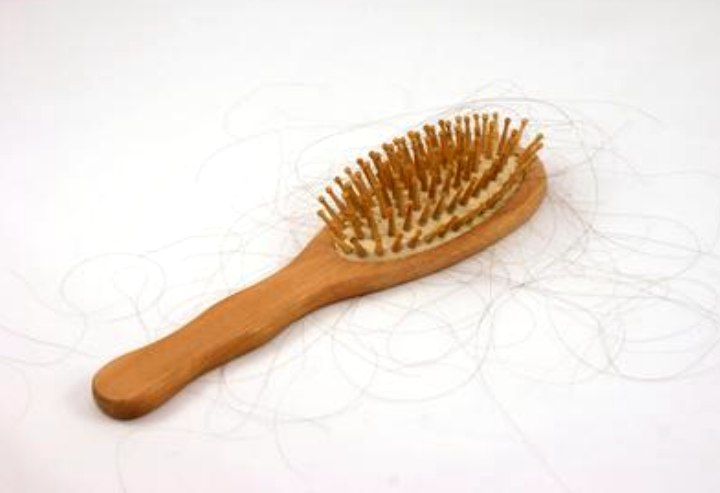Losing Hair

I'm 26 years old (and also starting to gray) and hair loss runs in the women on my father's side of the family. How can I tell if I'm losing my hair or if it is naturally shedding? How can I slow down my shedding? I don't eat much protein. Will that affect it and will vitamin E help?
A: When you notice long strands of hair gathering in your hand during shampooing or accumulating in your brush, it's natural to feel concerned. At 26, with premature graying and a family history of female hair loss on your father's side, your concerns are completely valid.
Experts have debated what constitutes "normal" shedding. Traditional wisdom suggested we lose around 100-150 hairs daily, but newer research indicates a lower range of 35-40 hairs might be more accurate. What we do know is that less than 1% of your hair is in the shedding phase at any given time, with this phase lasting approximately two weeks.
Determining whether you're experiencing normal shedding or problematic hair loss can be challenging. If you're noticing significantly more hair loss than usual, thinning in specific areas, or experiencing scalp tenderness or sensitivity, it's important to consult with a doctor promptly. Given your family history of female hair loss, genetics could be playing a role, but only a medical professional can properly evaluate this and rule out other potential causes.
Your diet could absolutely be contributing to your hair concerns. Hair is primarily composed of protein (specifically keratin), so your mention of not consuming much protein is significant. Without adequate protein intake, your body lacks the building blocks necessary for healthy hair growth.
As for slowing down shedding, maintaining overall hair and scalp health is essential. This includes:
Good grooming habits such as appropriate shampooing (not necessarily daily), regular conditioning, and gentle brushing to prevent tangles and stimulate scalp blood circulation. Avoid harsh styling practices that can stress your hair.
Proper nutrition is crucial. In addition to protein, your hair needs vitamins and minerals to thrive. While vitamin E can support hair health by improving circulation and helping with cell regeneration, it's not a miracle solution on its own. It works best as part of a comprehensive approach to nutrition.
Remember that supplements can complement but not replace a balanced diet. If you're seriously deficient in certain nutrients, simply taking a vitamin E supplement without addressing your overall nutritional needs won't provide dramatic results. Consider speaking with both a dermatologist who specializes in hair issues and a nutritionist who can help you develop a diet plan that supports healthy hair growth while meeting your other dietary preferences and needs.
©Hairfinder.com
See also:
Hair loss
Is wet hair more prone to hair loss?